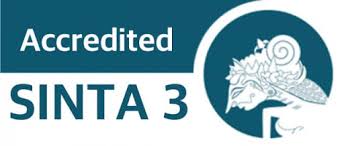Strategies for improving ESP learners’ language skills
DOI:
https://doi.org/10.54069/attadrib.v7i1.719Keywords:
ESP students, Esp lecturer, improving, strategies, language skillsAbstract
In this era of globalization, the demand for ESP instruction is increasing. ESP instructors must develop instruction suitable to the student's needs. This research aims to explore the strategies of the lecturer in teaching ESP students, to acknowledge the improvement in English language skills, and to gain the students’ perceptions of the implemented strategies. The participants are the lecturer and the students who take Early Childhood Islamic Education and Islamic Elementary School Teacher Education programs. This research used classroom action research design. The data were obtained by observing the ESP instruction implemented during the learning process, pre and post-tests, and the students’ responses. The results of the study revealed that ESP instructions or strategies used by the lecturer improved the English skills of students such as ability in speaking, pronunciation, and language use. The students’ perceptions of the strategies were also positive. They viewed that these strategies helped them understand the learning concept. Overall, the implementation of these strategies led to enhanced student learning outcomes and proficiency in English speaking skills.
Downloads
References
Al Ghifarah, N., & Pusparini, R. (2023). Students’ Perception Towards the Role of Ice Breaking Activities in Learning English At Senior High School. Journal of English Language Teaching and Literature (JELTL), 6(2), 118–128. https://doi.org/10.47080/jeltl.v6i2.2793
Arikunto, S. (2012). Penelitian tindakan kelas. Jakarta: PT. Bumi Aksara.
Bui, H. P. (2022). Students’ and teachers’ perceptions of effective ESP teaching. Heliyon, 8(9), e10628. https://doi.org/10.1016/j.heliyon.2022.e10628
Creswell, J. W. (2012). Educational research: Planning, conducting, and evaluating quantitative and qualitative research (4th ed.). Boston, MA: Pearson.
Enesi, M., Vrapi, F., & Trifoni, A. (2021). Challenges of teaching and learning English language for ESP courses. Journal of Educational and Social Research, 11(4), 213–226. https://doi.org/10.36941/jesr-2021-0090
Farhang, A. P. Q., Hashemi, A. P. S. S. A., & Ghorianfar, A. P. S. M. (2023). Lesson Plan and Its Importance in Teaching Process. International Journal of Current Science Research and Review, 06(08), 5901–5913. https://doi.org/10.47191/ijcsrr/v6-i8-57
Fraenkel, Jack R., Wallen, Norman E., Hyun, Helen H. (2012). How to design and evaluate research in education. New York: McGraw-Hill
Hyland, K. (2022). English for Specific Purposes: What Is It and Where Is It Taking Us? ESP Today, 10(2), 202–220. https://doi.org/10.18485/esptoday.2022.10.2.1
Indasari, N. L., & Amaliati, S. (2023). Strategi Meningkatkan Motivasi Belajar Bahasa Inggris Siswa Tingkat Sekolah Dasar. Acitya Bhakti, 3(2), 138. https://doi.org/10.32493/acb.v3i2.30190
Indasari, N. L. & Mubin, N. (2023). The Use of Sticky Notes in Reading Materials To Improve Esp Learners’ Vocabularies. Journal of Early Childhood Islamic Education, 10, 143–150.
Islam, F. S. P. (2017). Note-taking of english lessons at tertiary level: A context of bangladesh. International Journal of Language Education, 1(2), 1–7. https://doi.org/10.26858/ijole.v1i2.4314
Lawrence, D. (2014). No Title. Educating Young Children: Learning and Teaching in the Early Childhood Years, 20(1), 31–33.
Mahendra, A. W. (2020). Constructing identity?: Experiences of Indonesian ESP teachers in a language institute. 3(3), 229–240.
Mahmudjonovna, A. D., Abdusamatovna, AN., Kizi, K. S. J., & Khakimjanovna, S. L. (2022). ESP teaching methods. 7(3), 138–141.
Mendrofa, M., & Wijaya, M. (2022). Benefits of Drilling Repetition in Enhancing Second Language Learners’ Speaking Ability. International Journal of English and Applied Linguistics (IJEAL), 2(2), 263–270. https://doi.org/10.47709/ijeal.v2i2.1583
Mustafa Kurdi, S., & Sabah Meena, R. (2023). The Students’ Perception towards the Use of Icebreakers, Warmers, and Energizers in EFL Classrooms: A Tertiary Study. Arab World English Journal, 14(4), 233–251. https://doi.org/10.24093/awej/vol14no4.14
Fitria, T. N. (2023). Teaching English for Specific Purposes (Esp): Teachers’ Role and Their Challenges. Journal of English Education and Literacy, 2(1), 54–70. http://ejournal.unis.ac.id/index.php/Primacy
Paolini, A. (2015). Enhancing Teaching Effectiveness and Student Learning Outcomes. The Journal of Effective Teaching, 15(1), 20–33.
Poghosyan, N. (n.d.). Main Characteristics of ESP Teachers ’ Classroom Language Communication. Innovation in Language Learning.
Pratiwi, T. L., Rosinta, A., & Simorangkir, U. (2022). Improving students’ English pronunciation through drilling technique at SDS Pelangi School. Journal of English Language and Pedagogy, 5(1), 24–30.
Putri, M. W., Juniarta, P. A. K., & Wahyuni, L. G. E. (2022). The Implementation of Songs in Teaching English for Young Learners in Online Learning Context. The Art of Teaching English as a Foreign Language, 3(1), 49–58. https://doi.org/10.36663/tatefl.v3i1.251
Stan, A. (2022). Integrating content and language in ESP teaching. Bulletin of the Transilvania University of Brasov. Series IV: Philology and Cultural Studies, December 2022, 65–72. https://doi.org/10.31926/but.pcs.2022.64.15.1.4
Sudargini, Y., & Purwanto, A. (2020). the Effect of Teachers Pedagogic Competency on the Learning Outcomes of Students. Journal of Industrial Engineering & Management Research ( Jiemar), 1(4), 2722–8878. https://doi.org/10.7777/jiemar
Susanto, F., Ramos, P. P., & Ibrahim, M. A. A. S. (2023). Strategies of English Lecturers in Facilitating Interactional Communication of English Students During the New Normal Period of the Covid 19 Pandemic at UIN Fatmawati Sukarno Bengkulu for the 2021-2022 Academic Year. Al-Hijr: Journal of Adulearn World, 1(2), 120–133. https://doi.org/10.55849/alhijr.v1i2.513
Years, M. (2007). NSW Centre for Effective Reading Vocabulary?: Examples and Non-examples. Appendix 2, 1–5.
Downloads
Published
How to Cite
Issue
Section
License
Copyright (c) 2024 Nur Laili Indasari, Latifatul Fajriyah, Ali Rosyidi

This work is licensed under a Creative Commons Attribution-ShareAlike 4.0 International License.





